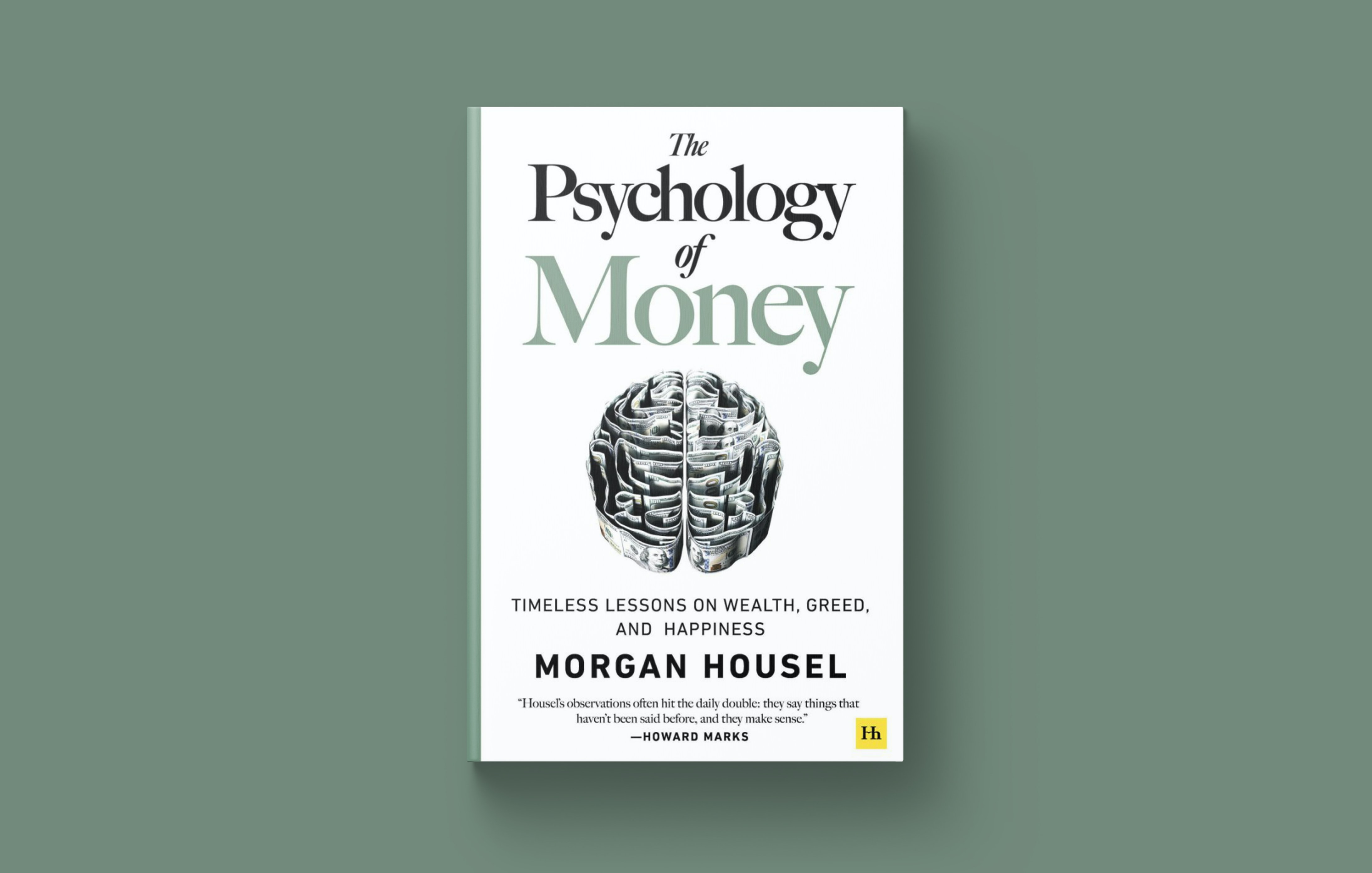Money’s greatest intrinsic value—and this can’t be overstated—is its ability to give you control over your time.
These are my key takeaways from Morgan Housel’s international bestseller “The Psychology of Money”.
I have kept my learnings to be short and skimmable and I would urge everyone reading this article to read the entire book.

Photo by Morgan Housel on Unsplash
The book is only about 240 pages long and it is a fast read. I read it cover to cover in two sittings—it was a real page turner.
Housel begins by talking about how people’s financial decisions are less mathematics, graphs and spreadsheets and are more influenced by their personal history, world view, ego, pride and odd incentives.
He drives this point throughout the book through 19 stories and teaches how you can make better financial decisions.
These are my notes—my key takeaways—on what each of these stories teach us.
- Everybody’s approach to money is different and is shaped by their own beliefs and experiences from different societies, cultures and economic conditions.
- The role of luck is often unaccounted. You can end up in the wrong side by making good financial decisions and vice versa. People at the top may have benefitted from luck while those at the bottom might have been the casualties of risk.
- Be careful who you praise and admire.
- Be careful who you look down upon and wish to avoid becoming.
- To ease this risk, replicate broader patterns instead of trying to replicate specific individuals.
- There is no reason to risk what you have and need for what you don’t have and don’t need. Your goals are never complete if you start comparing yourself with others. Keep your goalpost fixed.
- The role of time and compounding is important in building wealth. Ask Warren Buffet.
- Building wealth is easier compared to staying wealthy—it is a different game. Be optimistic that things will work out in the long term even while facing adversity in the short term. Raise your odds of success at a given level of risk.
- Failures are okay. Long list of failures are overcome by a small list of huge successes. Investment firms have huge portfolios and how many of them actually work out and make money?
- What wealth gives you is the control of time. This gives you control over doing what you want, when you want and with who you want. This is the most common variable that makes people happy.
- No one is impressed by your possessions as much as you are. People admire your possessions and not you. Trying to buy admiration and respect is a wild goose chase.
- Spending money to show you have money is the fastest way to loose money. Wealth is the money you don’t spend. It is what you don’t see. It is the ability to do/get things—time, freedom, possessions— in the future.
- You don’t need a reason to save money. You save money because you save money. With compounding, building wealth is more about savings rate than income (over a certain level of income).
- Investing strategies need not always be rational. Making reasonable choices like investing in your own country, investing in stocks you like and investing in family can give advantages. The best portfolio is the one that gives you peaceful sleep at night.
- Investing is not a hard science to work based on historical evidence. Investors are human and they are unpredictable.
- Experiencing specific events doesn’t necessarily qualify you to know what would happen next.
- The events that greatly affected the economy could be outliers.
- Surprises are surprising.
- Leave room for errors in your decision making. Think about what errors your can financially endure as well what you can emotionally endure.
- Your financial goals, your career goals, your life goals, change. Accounting for the unknown is hard and it is okay.
- The hidden price with investing is the ups and downs in the market, the uncertainty and the doubt in your mind. Be prepared to pay the price. Nothing is free.
- People are different and have different goals. Don’t be persuaded by the actions of people who are playing a different game than you. Understand your goals and your time horizon.
- Pessimism sounds smarter and people are drawn to its reasoning. But, the problems pessimists forecasts are solved by clever and novel solutions leading to optimistic futures.
- The more you want something to be true, the more likely you are to believe a story that overestimates the odds of it being true. These “appealing fictions” have significant impact on our investments.
This book is a must read if you are serious about investing, building wealth and being financially independent.
The book costs $16 and ₹269 on Amazon.
Thank you for reading "The Psychology of Money."
Subscribe via email or RSS feed to be the first to receive my content.
If you liked this post, check out my featured posts or learn more about me.
